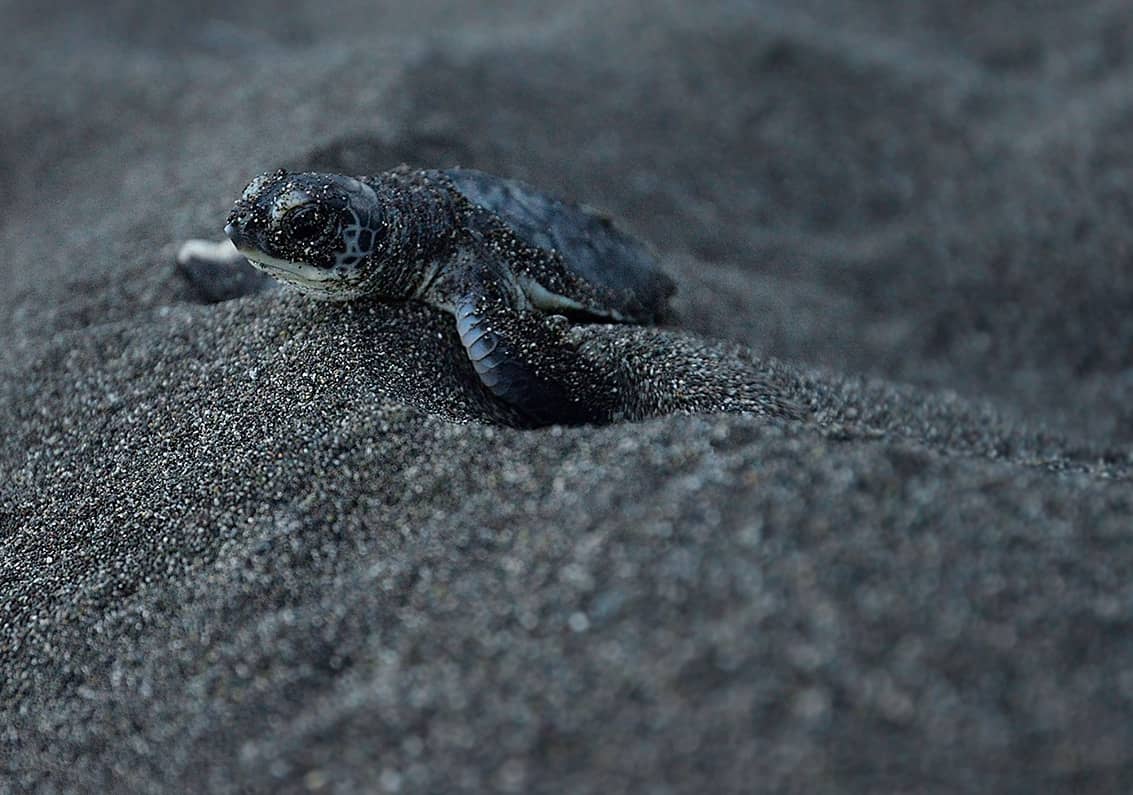The effects of climate change are increasingly evident in various parts of the planet. In Costa Rica, the impact is apparent due to high temperatures, changes in rainfall patterns, and now the decline in sea turtle hatchlings.
Experts from the APM Terminals Turtle Conservation Program, which protects sea turtle eggs and releases hatchlings on the beach that spans from the mouth of the Moín river to the mouth of the Matina River, have determined that this year the number of hatchlings and turtle releases in Moín will reach 10,000. In contrast, in 2022, approximately 30,000 turtles were released.
Climate change and its repercussions, such as rising sea levels, high sea temperatures, and shifts in migration and feeding patterns, are resulting in fewer hatchlings.
“There’s a decrease in turtle births on all nesting beaches from the Guajira Peninsula in Colombia to southern Nicaragua. We are monitoring data related to conditions exacerbated by and associated with climate change, such as warm waters in the North Atlantic that produce less food, and hot beaches with temperatures exceeding 34° Celsius, leading to infertile nests,” said Didiher Chacón, a specialist in Marine Sciences and the director of the Latin American Sea Turtles Association.
Risk factors
Climate change presents challenges that threaten the development of fertile turtle eggs and the births of leatherback, green, and hawksbill turtles.
For instance, sea turtles exhibit temperature-dependent sex determination. During incubation, the temperature determines whether the offspring will be male or female. Rising temperatures are producing more female turtles, thereby reducing the chances of reproduction.
Furthermore, the rise in sea levels, due to glacier melting and the thermal expansion of the oceans, results in a loss of nesting and feeding habitats for sea turtles. Nesting beaches may erode or become submerged, limiting the available space for turtles to nest.
Marine species rely on ocean currents and water temperatures for their migrations. Climate change can disrupt these patterns, affecting the availability of food and altering the migration routes of sea turtles.
Moreover, climate change can influence the availability and distribution of the turtles’ prey. Fluctuations in water temperatures and ocean acidification can destabilize marine ecosystems, thereby impacting the quantity and quality of food sources for sea turtles.
Didiher Chacón emphasized that people can help the cause through actions such as abstaining from consuming turtle eggs, participating in volunteer programs aimed at nest protection, cleaning beaches, minimizing their greenhouse gas emissions, recycling to curtail the demand for plastics, and educating the younger generations about these measures.






